Newsletter 10 Jul 2023
Environment: What’s Up in GENeva | 10 – 16 July 2023

The Geneva Environment Network’s weekly newsletter includes the latest information on the global environmental agenda, main events, job vacancies, learning opportunities, as well as other useful resources and updates. Stay tuned and follow us also on Twitter, Facebook, LinkedIn, and Youtube, or visit our website regularly for additional updates.
Image of the week | UNEP Chief Digital Officer, Golestan Sally Radwan, speaking at the AI for Good Summit, where she highlighted the potential of AI in monitoring the environment and enabling action among citizens and governments to tackle the Triple Planetary Crisis. She presented UNEP’s World Environment Situation Room, showcasing how AI tools can help share environmental knowledge, monitor the environment‘s conditions, and combat disinformation.
Global Consultation on Chemicals and Waste Issues of Concern
At the fifth session of the UN Environment Assembly (UNEA-5), Resolution 5/7 requested UNEP Executive Director to seek views from Member States and other stakeholders on priorities for further work, building on existing measures and initiatives, and on potential further international action on the 19 issues discussed in the Assessment Report on Issues of Concern, and the preparation of a summary analysis. Eleven of these are issues with emerging evidence of risks identified by the Global Chemicals Outlook II, and 8 are the emerging policy issues and other issues of concern identified under the Strategic Approach to International Chemicals Management. → Read the outcomes of an event organized within the framework of the Geneva Environment Network, that discussed priorities of future work and further potential international action.
As part of a broader consultation process, UNEP has launched a call for written inputs and is hosting a global consultation on the process on 11 and 12 July 2023, providing an overview of issues of concern and a deep dive into each of the chemical groups. → Register to attend in person at Palais des Nations in Room V or online from 9:00 to 18:00 CEST.
Environment @ Human Rights Council
The 53rd session of the Human Rights Council (HRC53) is concluding this week in Geneva. In the margins of the Council, an informal briefing is being organized by the Office of the High Commissioner for Human Rights and the UN Environment Programme on the efforts to advance the right to a clean, healthy, and sustainable environment. The session, taking place on 10 July 2023, from 13:30 to 14:30 CEST, will also highlight recent developments related to human rights and the environment.
Outcomes of last week include:
- Annual Panel on the adverse effect of climate change on the full realization of human rights, tackling specifically the full realization of the right to food | Speakers reiterated that addressing climate change is a human rights issue and that the world is demanding action. As climate change exacerbates hunger and famine due to increased droughts, crop failures, and weather extremes, there is a need to protect those most affected – in particular, children – and to ensure radical changes to the industrial food system. With an increased financial need to address hunger exacerbated by the climate crisis, a human rights-based approach is needed, ensuring that we preserve and respect the knowledge and practices of Indigenous Peoples that have long since contributed to climate action.
- Interactive Dialogue with the Council on the UN Secretary-General’s report on climate change and the right to food | As climate change poses serious threats to our right to food, the report also highlights how our current global food systems have also been a significant anthropogenic source of greenhouse gas emissions. Highlighting the need to transition to more sustainable food systems, including agroecology, we can help address the climate crisis and safeguard our right to food through rights-based action by ensuring social safeguards, ending harmful agricultural subsidies, reassessing land use, and protecting rights-holders and defenders, among others.
→ Regular updates on key environmental issues at HRC53, side events, summaries, highlights, and further resources are available on our HRC53 and the environment-dedicated webpage.
Moratorium on Deep Seabed Mining to Protect Ocean Ecosystems
All eyes this week are on the 2nd part of the 28th session of the Annual Session International Seabed Authority (ISA), starting convening for three weeks in Kingston, Jamaica. The meeting is expected to clarify possible scenarios as the deadline triggered by Nauru’s request to apply for approval of a deep-sea mineral exploitation plan expired on 9 July. So far, the ISA has allowed companies to explore the deep sea for research purposes only. It has created and adopted regulations to govern 31 exploration contracts, sponsored by 14 countries. → Follow the live coverage of the Earth Negotiation Bulletin.
It is to be noted that numerous stakeholders are requesting a moratorium on deep seabed mining (DSM) to protect life in the ocean:
- At IUCN 2021 World Conservation Congress, IUCN Member States, civil society, and Indigenous organizations overwhelmingly voted in support of a moratorium on deep seabed mining to protect life in the ocean.
- A Moratorium Alliance for resistance to deep-sea mining, was launched by Palau at the UN Ocean Conference in Lisbon. Fiji and Samoa were the first countries to join the Alliance, followed by the Federated States of Micronesia.
- As of early July 2023, 17 countries have taken positions against deep-sea mining in international waters, with a moratorium position, a precautionary pause, or a ban. A few should be announced soon. On 28 June 2023, the Swiss Federal Council adopted its position, supporting a moratorium on commercial exploitation of the Area until there is more scientific knowledge of its impact and protection of the marine environment can be guaranteed.
- Stakeholders such as WWF International have developed and highlighted resources on the widespread concern in the scientific community about deep seabed mining and the irreversible impact it would have on delicately balanced deep ocean ecosystems.
- The Pew Charitable Trusts commissioned an independent legal opinion written by four international law experts on this issue of consistency of a moratorium or precautionary pause on DSM in areas beyond national jurisdiction with States’ obligations under UNCLOS. The lawyers concluded that deferring the commencement of DSM – through the adoption of a moratorium, precautionary pause or similar action – is not only consistent with UNCLOS but actually is required by international law, for three primary reasons: the current lack of science, the lack of a DSM regulatory framework, and the ISA’s limited institutional capacity for governance and oversight.
- Most of the deep sea is unprotected and undocumented. A team of international scientists recently discovered a new deep-sea octopus nursery at a low-temperature hydrothermal vent offshore of Costa Rica. The discovery of the brooding site brings the world’s known octopus nurseries to three. The team also proved that the first known aggregation of deep-sea octopus, the Dorado Outcrop, is an active nursery.
- Various media are also sharing views on this important negotiation. The Financial Times issued this week-end the article ‘Deep-sea mining tussle pits France and Germany against China‘ highlighting how the crunch talks in Jamaica should determine the future of the drive to extract critical minerals from ocean depths.
- Personalities, such as the Ocean Advocate, IUCN Patron of Nature, and UNCTAD Special Adviser for the Blue Economy, Dona Bertarelli, have taken strong positions against deep-sea mining.
High-Level Political Forum and International Geneva
The 2023 edition of the High-level Political Forum on Sustainable Development (HLPF) kicks off this week at the UN Headquarters in New York under the auspices of the Economic and Social Council, organized under the theme “Accelerating the recovery from the coronavirus disease (COVID-19) and the full implementation of the 2030 Agenda for Sustainable Development at all levels“. The HLPF will support the mid-term review of the implementation of the SDGs and the preparations for the 2023 SDG Summit and review in-depth Goals 6 on clean water and sanitation, 7 on affordable and clean energy, 9 on industry, innovation, and infrastructure, 11 on sustainable cities and communities, and 17 on partnerships for the Goals.→ Follow the Earth Negotiation Bulletin daily summaries and highlights
On the margins of the 2023 HLPF, various side events, Voluntary National Reviews (VNR) Labs, special events, and exhibitions will take place, and count on the participation of numerous institutions and experts from international Geneva. Special and parallel events to HLPF include:
- UNECE, servicing the Water Convention and the Protocol on Water and Health, will participate in and organize various side events on water as the HLPF program includes the thematic review of SDG6 on clean water and sanitation and the SDG 6 & Water Action Agenda Special Event → List of water-related events.
- The Fourth Global Conference on Climate and SDG Synergies takes place on 16 July 2023 as a special event to the HLPF. Convened by the UN Department of Economic and Social Affairs and the UN Convention on Climate Change, it will take stock of progress on synergistic action at all levels and plan ahead on prioritizing areas and assess progress made against a set of key recommendations that emerged from the previous conference, including the need to include principles of just transition at the center of each integrated planning.
- In parallel to the HLPF, CIEL, FIAN International, Global Initiative for Economic, Social & Cultural Rights, ONGO, and World Future Council will host a hybrid launch event on the Maastricht Principles on the Human Rights of Future Generations, adopted in February 2023, on 13 July. The principles seek to consolidate and develop existing human rights standards to enhance the protection and fulfillment of the human rights of future generations.
Climate Change Out of Control | Hottest Month and Days Ever Recorded
The world just had the hottest June on record, with unprecedented sea surface temperatures and record-low Antarctic sea ice extent. North Atlantic sea surface temperatures were “off the charts”. The heat extended into the early days of July. WMO Director of Climate Services, Prof. Chris Hewitt, explained that “the exceptional warmth in June and at the start of July occurred at the onset of the development of El Niño, which is expected to further fuel the heat both on land and in the oceans and lead to more extreme temperatures and marine heatwaves.”
UN Secretary-General Antonio Guterres stressed that as the world broke the daily temperature record last week, this is yet another demonstration that climate change is out of control and one more reason for increased climate action ambition and justice. If we persist in delaying key measures that are needed, we are moving into a catastrophic situation, as the last two records in temperature demonstrates.
An article from Bloomberg issued last week – A $30 Billion Disaster Is Just the Tip of a Deadly Climate Cycle – reminds us that Pakistan’s record flooding the previous year displaced millions and left the country reeling. As a new monsoon season approaches, recovery efforts are floundering. One of the most vulnerable countries to climate change, Pakistan is responsible for just 1% of global greenhouse gas emissions. That disconnect has put it at the forefront of conversations around “loss and damage” shorthand for a program where developed nations compensate poorer nations for suffering linked to climate crises.
Green Summer in Geneva
Extreme temperatures, heat waves and prolonged exposure to sun rays during summer can pose health risks. With temperature records being broken each year, it is fundamental to take protective measures. Alongside tips on how to stay healthy and refresh from the heat during summertime, our Green Summer in Geneva update lists opportunities to discover nature and enjoy the city. This week’s suggestions for activities include:
- CinéTransat | From 13 July to 20 August 2023, CinéTransat, active since 2009, will offer a program of free movie screenings in Perle du Lac. → Consult the full program
- The Sunday Rally at the Botanical Conservatory and Garden | Designed as a fun and educational exploratory game, the rally offers the public the opportunity to walk through the garden, to immerse themselves in the temporary exhibition #GreenPlanet – Botanical Missions to learn more about institutional activities, or to explore the living collections to observe the tiny and astonishing structures that make them up.→ Join the workshop on Sunday, 16 July at 14:30 CEST.
- Concours Fraîcheur – Astuce Canicule | The deadline to participate in the contest is 10 July. Submit tips on how to escape the heatwave and win entries to swimming pools in Geneva.
What (Else) to Read Next?
- Panama is the first Latin American country to join UN Water Convention | UNECE | 6 July 2023
By becoming the first country from Latin America to accede to the Convention on the Protection and Use of Transboundary Watercourses and International Lakes (Water Convention), Panama made a decisive step to support the sustainable use of transboundary water resources through cooperation across borders.
- Forest work must be made safer and healthier, says new FAO-ILO-UNECE report | FAO, ILO & UNECE | 6 July 2023
While forests provide employment, food, income, shelter, and ecosystem services for millions, they are among the most dangerous places to work. A systemic change is needed to provide a safe and healthy working environment for the estimated 33 million people working in the forest sector worldwide.
- World Investment Report 2023 | UNCTAD | 5 June 2023
The World Investment Report 2023 reveals a widening annual investment deficit that developing countries face as they work to achieve the SDGs by 2030. The gap is now about $4 trillion per year. The report calls for urgent support to developing countries to enable them to attract more investment for their transition to clean energy
- Chemicals and climate change in the world of work: Impacts for occupational safety and health | ILO | 5 July 2023
This report examines the interconnectedness of climate change, chemicals, and the world of work, discussing common risks and hazards and exploring action to be taken at the national and workplace level toward mitigating these risks. - EU makes bid to stop food and textiles waste | European Environmental Bureau | 5 July 2023
The European Commission released today its plans to revise the Waste Framework Directive, with a focus limited to new rules on the responsibility of textile producers, and new food waste reduction targets.
- Japan formally accepts Agreement on Fisheries Subsidies | WTO | 4 July 2023
In the words of DG Okonjo-Iweala “[…] This significant step forward holds great importance considering Japan’s status as a prominent fishing nation and as a steadfast supporter of the WTO and the multilateral trading system. As we continue to navigate the challenges posed by overfishing and the depletion of fish stocks, the active participation of Japan and the wider WTO membership will be crucial.”
- Unpacking the Right to a Healthy Environment: How national and regional laws and jurisprudence clarify the scope and content of the universal right | NYU School of Law’s Earth Rights Advocacy (ERA) and the Universal Rights Group (URG)| 4 July 2023
This report examines the features and best practices associated with the global implementation of the right to a healthy environment. It aims to contextualize the recent recognition of R2HE, shedding light on how countries, courts, and civil societies can ensure that international R2HE materially improves the lives of individuals and communities around the world. It concludes with recommendations on how countries can strengthen the implementation of R2HE.
Events
See all
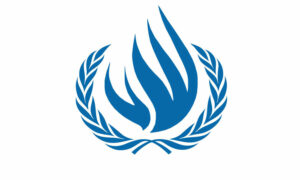

Body Meeting
Informal Open-ended Negotiating Group on Rules | Fisheries Subsidies
10 – 14 Jul 2023
WTO | Room CR & E
WTO

Body Meeting
Multi-year Expert meeting on Trade, Services and Development, 10th session | The role of trade and services for enhancing science, technology and innovation to promote a fair transition to sustainable energy
10 – 12 Jul 2023
Palais des Nations, Room XXVI
UNCTAD

Body Meeting
44th session | AC.10/C.4 | Sub-Committee of Experts on the Globally Harmonized System of Classification and Labelling of Chemicals
10 – 12 Jul 2023
Palais des Nations | Room Tempus
UNECE
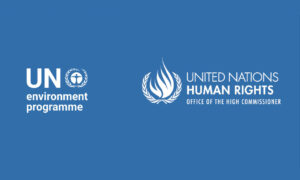
Conference
Informal Briefing on OHCHR-UNEP Collaboration to Advance the Right to a Clean, Healthy and Sustainable Environment | HRC53 Side Event
10 Jul 2023 13:30 – 14:30
Palais des Nations, Room XXIV
UNEP, OHCHR

Body Meeting
Global Consultation on Chemicals and Waste Issues of Concern
11 – 12 Jul 2023
Palais des Nations, Room V
UNEP Chemicals and Health Branch

Body Meeting
Compte-rendu du Sommet de Paris 2023
11 Jul 2023 15:30 – 17:00
Palais des Nations | Room III
France

Body Meeting
Trade and Environmental Sustainability Structured Discussions (TESSD)
11 Jul 2023 10:00
WTO
WTO

Conference
Pandemic Prevention, Preparedness and Response: Mayors’ Voices Matter
11 Jul 2023 15:00 – 16:15
Villa Rigot & Online | Zoom
Global Cities Hub - Geneva


Conference
The Nuts and Bolts of incorporating Disaster Risk Reduction in your wetlands management plans
12 Jul 2023 11:00 – 12:15
Online | Zoom
Ramsar Convention, UNEP

Virtual
2023 RISK Award Online Ceremony | “Climate resilience and early warning”
12 Jul 2023 13:00
Online
UNDRR, Munich Re Foundation

Conference
Ensuring Human Rights in the Face of Current Global Challenges | HRC 53 Side Event
12 Jul 2023 14:00 – 15:00
Palais des Nations, Room XXV
Geneva Academy, GHRP

Conference
WHO 75th and Codex 60th anniversary of the joint FAO/WHO Codex Alimentarius programme
13 Jul 2023 16:00 – 20:00
CICG & Online
WHO, FAO
Jobs
See all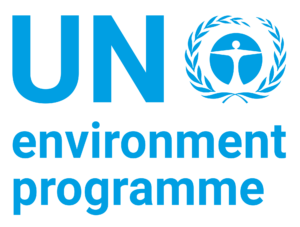
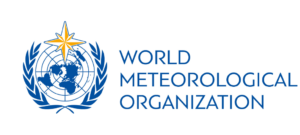



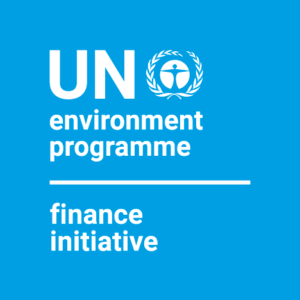

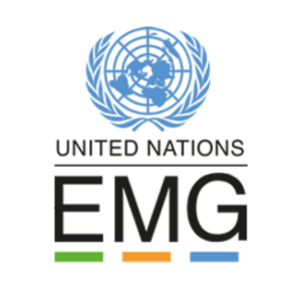




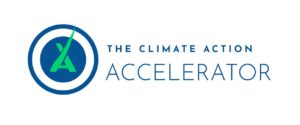

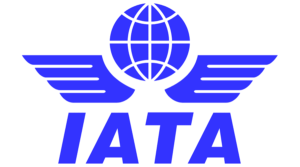
Learning
See all
Course in Geneva
Summer School 2023 | Finance, Growth and Distribution: Policy challenges in a world of cascading crises
28 – 31 Aug 2023
UNCTAD



